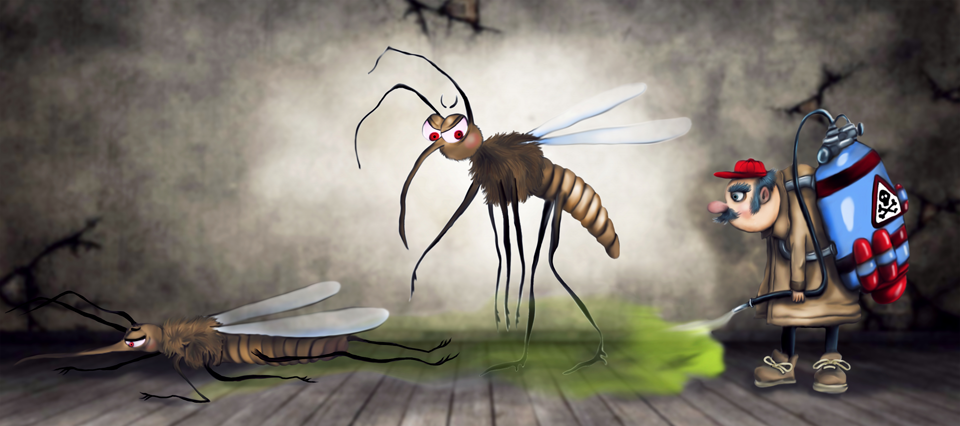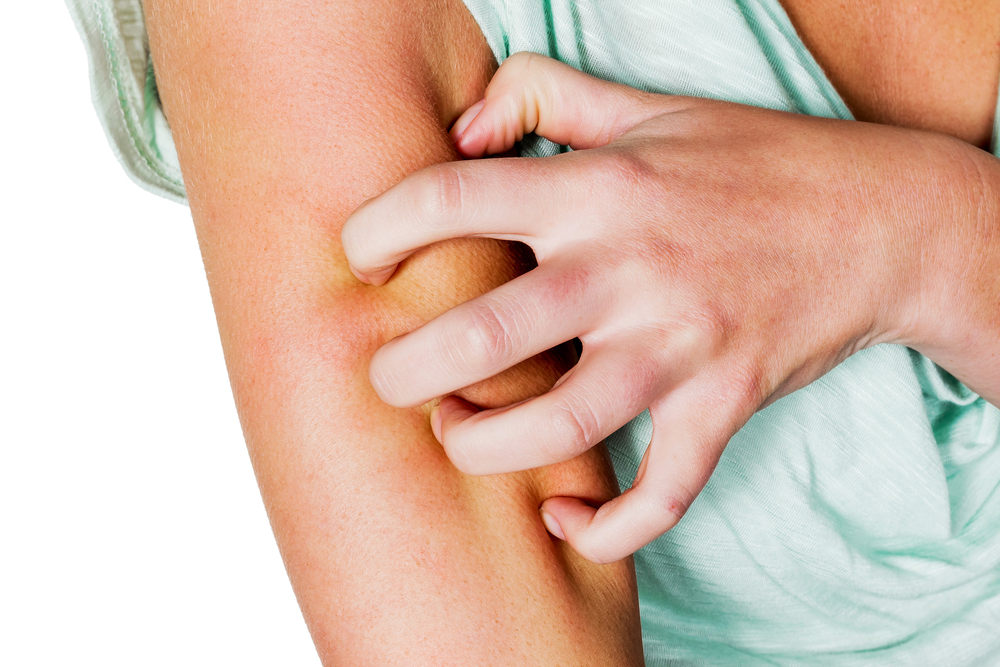Few of Mother Nature’s creations draw as much hostility from humans as the mosquito, which is understandable considering it’s responsible for one million human deaths every year. That’s far more of us than any other animal on the face of the planet manages to take out.
Our grief with Mosquitoes
For those living in areas where mosquitoes don’t wreak havoc to the point of wiping out entire villages, the main complaint we have against mosquitoes is that they are ill-mannered, intrusive, insufferably loud and prone to unceremoniously plunging their mouths into our skin. This last grievance is perhaps the most serious of all. We don’t necessarily enjoy being kept awake at night by incessant buzzing noises, nor do we particularly like them dropping in uninvited every day, but we draw the line at biting.
Modus Operandi
Nobody wants to be on a mosquito’s menu, not least because its bite stings. It should be noted that only the female mosquito bites and sucks blood, while the male collects nectar from flowers. This does nothing for the feminist cause, does it?
The intrepid female mosquito inserts the flexible proboscis mouth piece in the outer layer of the skin, the epidermis, and skillfully guides it toward the blood vessel, feeling its way around the dermis. The proboscis is not only much thinner than a syringe needle, but it also detects the blood vessel. The mosquito could rival the best phlebotomists in the world. In fact, we all know some mosquito stings are so quick and delicate that they take us off guard. When’s the last time that happened to you when you were giving blood at the hospital?
As soon as the mosquito pin-points her vessel of choice, she pierces it and inserts a blood thinning agent so that she may siphon the blood. The brew is nothing other than mosquito saliva. Without this secretion, human blood would be too viscous to draw through her tiny mouth piece, and it would also clot almost instantly, instead of continuing to flow through the vessel while the mosquito sips in as much as she needs. And she usually needs quite a bit. Twice or thrice her weight in blood is not an unusual tax to levy for the hungry mosquito. After all, you’re in mosquito country wherever you go.
Fighting Back
The alien polypeptides in the anticoagulant saliva are the compounds which trigger a reaction from the human immune system. The response is to create histamines, and these are the substances which cause the skin to itch, not the saliva. The histamines are sent to the attacked area and this determines the blood vessels in that area to swell. This inflammation, which becomes hard to the touch and looks like a simple red bump, is called a wheal.
Histamine.101
Histamine is a neurotransmitter which regulates functions of the gut and is also involved in some local immune responses. This compound is released by cells in connective tissues close to the bite area. It makes blood capillaries more permeable to white blood cells and proteins, which engage the alien substances identified as pathogens.
When an allergic reaction occurs, it is because the body believes an alien substance could harm it and starts the chain reaction that releases histamine into the bloodstream. Because histamine distends the capillary walls in the body, it causes liquids to leak through. An example of this is having a runny nose. The histamine will then produce the allergy symptoms we are all familiar with: teary eyes, runny nose, swollen throat, wheezy lungs, and the like.
Check out more about allergies!
Whence Comes the Itch?
When the area around the bite swells, the nerves are irritated and give you an itchy sensation. When histamine, which can be transferred to the brain through the spinal cord, is detected by certain nerve fibers, the feeling of ‘itchiness’ ensues, and this sensation affects several areas of the brain, including those that control sensory, emotional and motivational patterns. Hence the urge to scratch.
Scratching, in turn, reduces the activity of parts of the cingulated cortex of the brain and produces pleasure. These two processes together explain why we enjoy scratching an itch so much, even though we are aware it’s bad for us.
To relieve the itchiness, you could try applying an ice pack on the area of the bite. This would effectively numb the nerves so that you’re unable to feel anything, least of all itchiness. Taking antihistamines is a much more effective way of stopping itches, though. These work directly with the nerve cells to stop the itch from manifesting.
Treating the itching and swelling!
Turn the tide
Itching can be an instantaneous reaction, or it can develop over the course of a few hours. Occasionally, people who have been exposed to mosquitoes for considerable amount of time have been known to develop immunity to mosquito bites. A normal reaction should subside within a few hours after it started developing, and any pain or discomfort should be mild.
There are occasions where people develop serious allergic reactions to mosquito bites. The reason is not yet fully understood, but it is thought to have a connection with the autoimmune reaction of the body toward saliva’s enzymes. And because mosquito saliva is so different from one species to the next, some bites could result in a reaction, others might not. So, they can be local or systemic reactions, they can occur with some species of mosquitoes but not with others, and they can be acquired or inherent. Unfortunately, as the causes are not yet fully understood, long-term treatments are lacking.
But short-term relief for normal mosquito bite itching is much easier to achieve. Topical corticosteroids, oral antihistamines and natural remedies are available over the counter. When traveling with children who have a history of developing rashes and wheals from mosquito bites, try administering oral antihistamines in advance, so that their local allergic reactions are milder. Some home-made remedies could contain aloe vera, calendula officinalis, chamomile, cinnamon, cucumber, honey, lavender, basil, peppermint and a plethora of readily available plants and produce.
It’s a matter of trial and error with most anti-itch remedies. Some say salt water works, others that cold water is best for am itching bite, while others say a hot bath works wonders. People will try whatever they have at hand to relieve an itch, including toothpaste, mouthwash, wet aspirine, witch hazel, calamine lotion, baby powder, soap, mud, etc.
In reality, an itch is an indication that the body is fighting back against a perceived danger, and unless it is accompanied by throbbing inflammation, it’s best to try not to give it too much attention. It will eventually go away of its own accord. Your immune system will see to that. If, however, you’d like some immediate relief, go with a tried and tested option: commercialized remedies.

